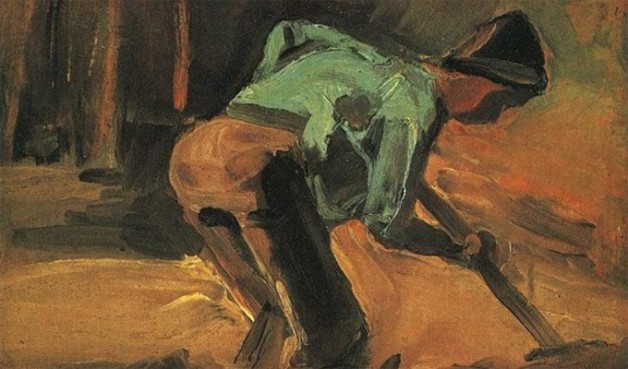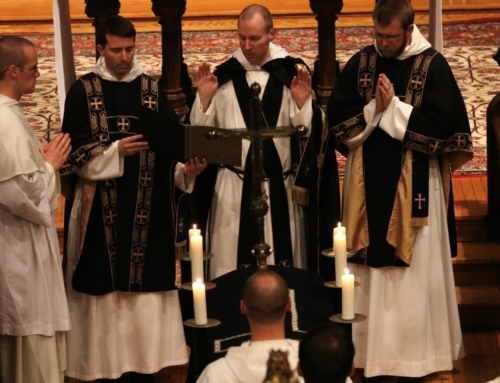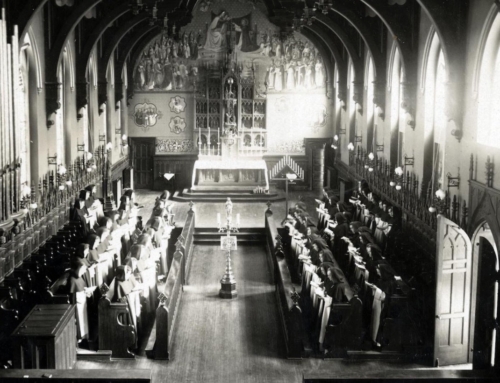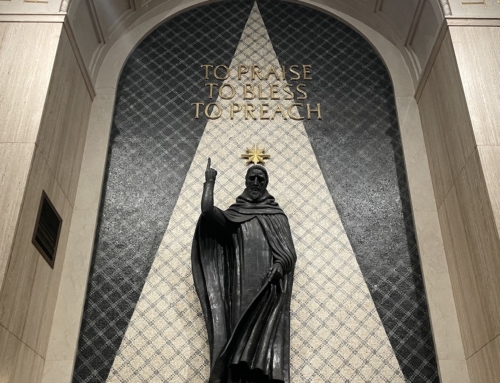Today the Church commemorates the feast-day of St. Martin de Porres (1579 – 1639), one of the most beloved saints of popular piety throughout the world. He was born in a tiny hut in Lima, Peru, the son of a Spanish knight and a woman of African descent who had been freed from slavery. After the birth of Martin’s younger sister, his father abandoned the family, partly because he was embarrassed to be seen with his “colored” children, who belonged to a lower class in society.
Young Martin, then, was given the task of taking care of his family. He would be sent by his mother to retrieve food from the market, but Martin, moved by compassion at the sight of the poverty around him, gave away his food to the poor people of Lima. His mother beat him for his generosity, but Martin believed in his heart that serving the poor was worth the punishment. He would devote the rest of his life to serving the needs of the poor.
St. Martin is well-known for his extraordinary miracles, and his life is filled with wonderful stories of his numerous bilocations, healings, and even conversations with animals. All he did was directed to serving the poor people of Lima, who affectionately dubbed him “Father of the Poor.” St. Martin de Porres is recognized today as the patron saint of social and interracial justice.
At one level, St. Martin’s life is a wonderful story of someone who overcame the hardships of family and prejudice and ended up doing a great service to society. Everyone loves a good underdog story, and this is a perfect example – almost a spiritual rags-to-riches story. But if we stop there, we risk seriously misinterpreting the life of St. Martin de Porres. The danger is a common one – we tend to remember what people have done in their lives rather than who they are.
First, St. Martin was a Dominican, that is, he was a son of St. Dominic. He always had a great admiration for the Friars Preachers. Just as St. Catherine of Siena, who, as a young girl, would watch the Friars walk past her home and then hurry outside to kiss their footprints, Martin saw the Order with great awe and wonder. He saw it as a holy Order, under the constant care and protection of the Mother of God.
This is why Martin, when he was fifteen, knocked at the door of the Dominican Convent of the Holy Rosary in Lima and asked to be admitted as a Tertiary helper. He did not ask for the black and white habit of a regular lay brother. That was too honorable for him! Martin, rather, sought the lowest place in the community. Martin was too humble to see himself in the line of great Dominican saints like St. Thomas Aquinas or St. Vincent Ferrer, whom he had special devotions to.
But after nine years of service as a Tertiary, Martin was ordered by virtue of holy obedience to take Solemn Vows and become a regular lay brother at the age of twenty-four. This was a truly glorious day for Martin, to become a son of St. Dominic! St. Martin from then on spent the rest of his life as a Dominican, living in the Dominican priory, constantly praying and singing sweet songs to Mary.
Second, St. Martin was a Dominican brother. He worked tirelessly around the priory, sweeping the hallways and a thousand other menial chores. He also took care of his Dominican brothers when they were sick. But Martin did more than care for his brothers’ physical needs. He was concerned for their souls. Every night, St. Martin would kneel in front of the Crucifix, weeping and pleading for our Lord’s mercy to save the souls of his brothers from the fires of Hell. This was how Martin was truly a brother to his brothers.
St. Martin was an exemplar of social justice and a wonder worker, but that is not all he was. Above all, he was a man consumed with love for God and his neighbor after the manner of St. Dominic. He lived his vocation to the fullest, walking the narrow path of humility and charity despite every trial and temptation. May St. Martin de Porres intercede for us, that we might have the grace to follow him on that holy way.
St. Martin de Porres, pray for us!
Image: Vincent Van Gogh, Man Stooping with Stick or Spade







